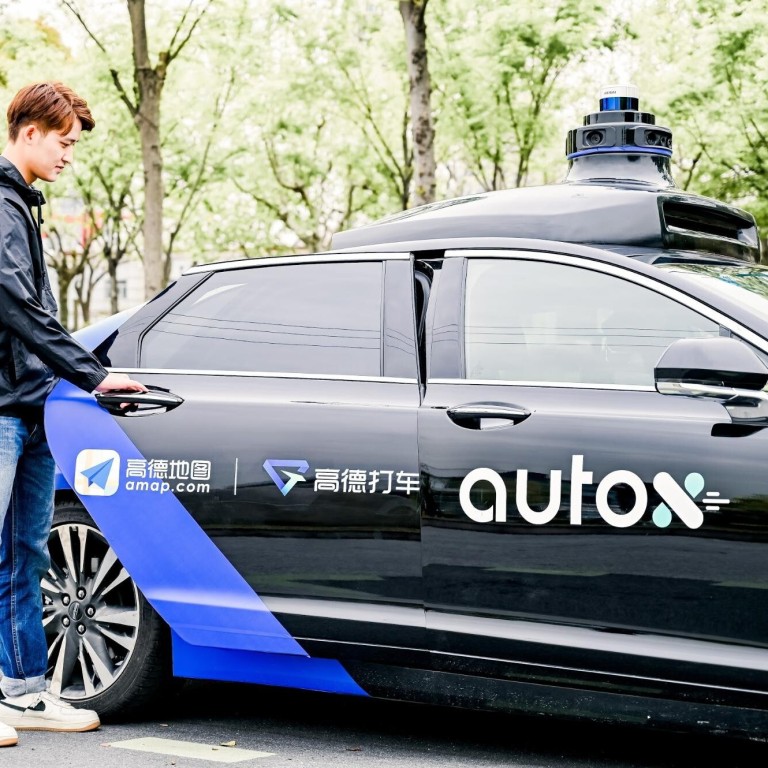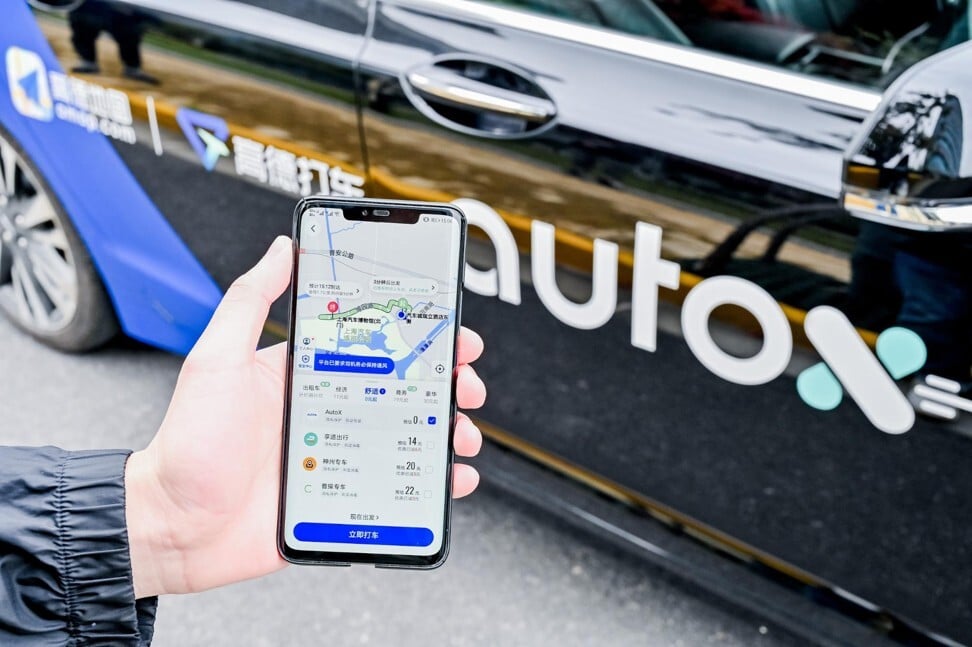
AutoX, Alibaba’s AutoNavi roll out robotaxis in Shanghai’s ride-hailing services market
- Riders can choose to request both a regular car with driver or a self-driving RoboTaxi from AutoX at the same time from Autonavi’s Amap app
- Jiading, a district in the northwestern part of Shanghai, is the main coverage area for the self-driving car service
Shanghai commuters will now be able to take robotaxis for a spin on a major Chinese ride-hailing platform, with this week’s launch of a service initiated by autonomous driving start-up AutoX and mobility super app operator AutoNavi.
The service is available from Monday via AutoNavi’s Amap app, known as Gaode in Chinese, from which users can choose to request both a regular car with driver or a self-driving RoboTaxi from AutoX at the same time. The app’s algorithm determines which vehicle to dispatch based on the earliest time of arrival.
Jiading, a district with a population of more than 1.5 million located in the northwestern part of Shanghai, is the main coverage area for the service, which will initially cater to riders who had signed up before the launch.

“The service area of autonomous vehicles is an ever-increasing yet geo-fenced region, and the fleet size takes time to grow,” Xiao said. He described the combination of a human-driven fleet in the service as “a must-have for an autonomous driving company to be able to provide a truly useful service for all riders”.
The AutoX and Amap service will also offer a joint promotion of free rides for China’s upcoming Labour Day holiday in May, when the programme will be opened to the general public.
The two companies’ initiative in Shanghai marks another step forward in the global move towards autonomous vehicles, which are quickly becoming the world’s first major artificial intelligence (AI) revolution. The sector has drawn billions of dollars of investment over the past few years, with the global autonomous vehicles market projected to be worth US$65.3 billion by 2027, according to a report from Market Research Future.
Large US players such as Alphabet, Tesla and General Motors have already jumped on board with high-profile self-driving car projects, while Chinese hi-tech companies are racing to catch up.
AutoX sets up ‘Asia’s largest robotaxi operations centre’ in Shanghai
In China, the world’s biggest car market, major cities are also racing to help develop the domestic market and smart infrastructure for self-driving vehicles through collaborations with hi-tech firms.
AutoX recently launched its 80,000-square feet base in Shanghai, which now serves as home to Asia’s biggest robotaxi operations centre and largest hub for self-driving car data in China. The facility will support AutoX’s operation of 100 self-driving vehicles on public roads and future service expansion.
AutoX said it is the first in China to put into operation self-driving vehicles that can reach the maximum speed of 80 kilometres per hour on non-highway city streets.
That is made possible by Shanghai’s 5G-based V2X technology, which enables each robotaxi to “communicate” with road infrastructure such as traffic lights to obtain relevant data.
The AutoX RoboTaxi launch in Shanghai also marks the first time such a service has become available on a major ride-hailing platform in China, according to the company. AutoNavi’s Amap app aggregates mobility services provided by more than 40 companies on its platform, which had 478 million monthly active users in March.

AutoNavi, which started out as a simple maps and navigation service, was acquired by Alibaba Group Holding in 2014 for US$1.5 billion and has since turned into a super app, a trend in China where an array of services can be accessed at the tap of a finger from one app. Alibaba is the parent company of the South China Morning Post.
While the AutoX RoboTaxi service offers a new ride-hailing option for the daily commute of people to subway stations, grocery stores and other places in Jiading district, big competition looms.

